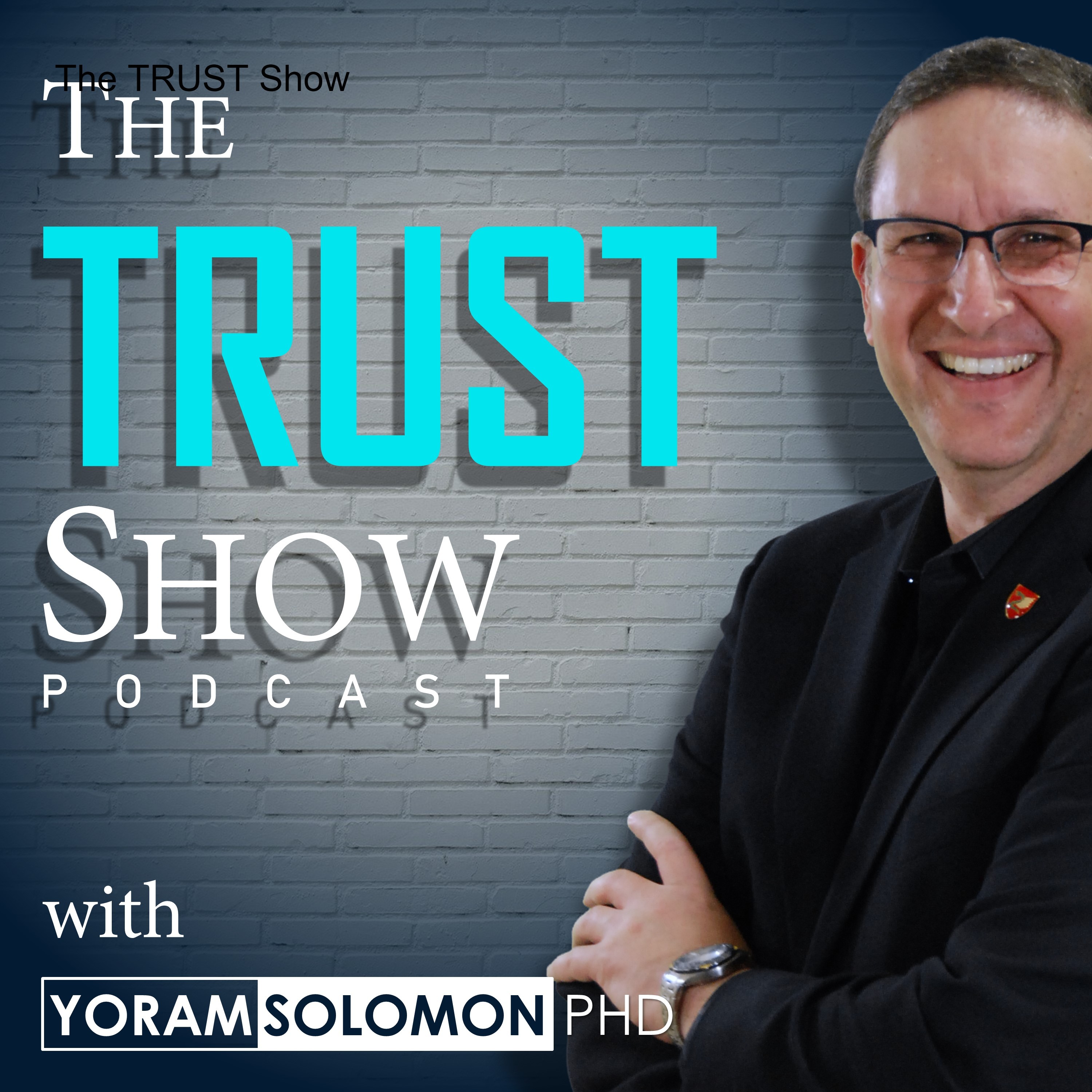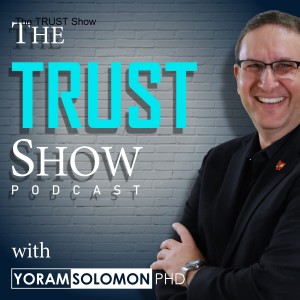
17.3K
Downloads
195
Episodes
Trust is not what you think it is. It is not absolute or universal. Trust is relative. The same behavior that would cause one person to trust you could cause another person to distrust you. The level of trust someone has in you is the product of their trustfulness (their willingness to trust other people) and your trustworthiness. There is almost (I said ALMOST) nothing you can do about the former, and everything you can do about the latter. Because of that, you must evaluate your own trustworthiness one relationship at a time, separately. Odds are, though, that the same behaviors that are holding you back from being more trusted in one relationship are holding you back from being more trusted in other relationships. Welcome to The Trust Show. I’m your host, Yoram Solomon, a top 10 trust expert and researcher, the author of the book of trust, and the creator of the Trust Habits® workshop that helps people and organizations form new habits that change old behaviors, build trust, and transform organizations. In this educational podcast, I will challenge you to think differently about trust, through the 8 laws of trust and the 6 components of trustworthiness. I will share my own stories, experiences of others, trust research, and sometimes, reflect on a news item. And through those, I will show you how to build trust, be trusted, and know who to trust. Because the answer to this question will have the biggest impact on your personal and professional, success or failure: can you be trusted?
Episodes

Sunday Nov 14, 2021
S3E6: Becoming more Trusted, Step 5: Making it Stick (Part I)
Sunday Nov 14, 2021
Sunday Nov 14, 2021
The last three episodes covered the first four steps in developing a habit that will help you become more trusted. You identified a specific relationship (Step 1), one bad habit you have that's holding you back from being more trusted (Step 2), and one good new habit that will contradict your bad habit (Step 3). In Step 4, you clarified it further and made it a S.M.A.R.T. habit (specific, measurable, achievable, relevant, and time-bound). This episode will help you make this new habit stick, make it easier to form into something that you do automatically. This episode will cover the first 5 (of 6) methods to achieve that: Filling the void, Friction Control, Habit Conditioning, Technical Support, and Logging.

No comments yet. Be the first to say something!